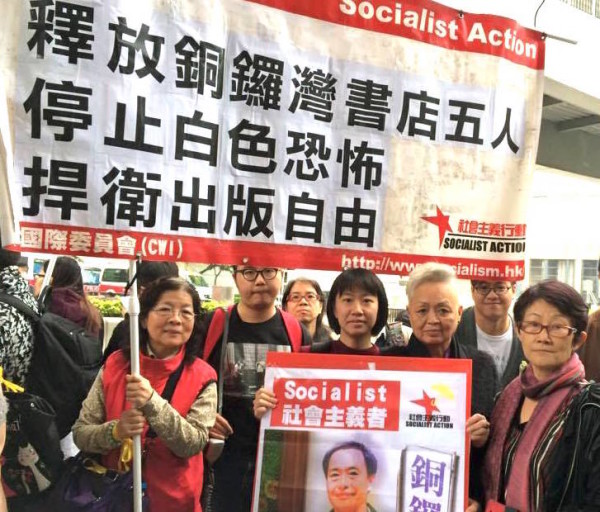The Chinese regime is stepping up its crackdown on dissent
chinaworker.info reporters
The Chinese regime is stepping up its crackdown on dissent in the wake of a deeply embarrassing open letter calling for President Xi Jinping to resign. The letter signed by “loyal Communist Party members” surfaced during the annual session of the National People’s Congress earlier this month. It was briefly published and then removed by censors from the website Wujie News, which is part-owned by the Xinjiang regional government and internet company Alibaba.
This affair led to the arrest of Beijing-based journalist Jia Jia as reported on chinaworker.info. Jia was released after two weeks in police detention on Friday. As we predicted, Jia’s arrest has been followed by further arrests as the authorities seek to sniff out and punish the authors of the letter. According to the BBC 20 people have now been seized in connection with the case. As the BBC report noted, “In most countries the contents of the letter would be run-of-the-mill political polemic.”
But in a dictatorship like China, the issues raised in the letter are strictly taboo. The letter blames Xi Jinping for economic mismanagement, creating a cult of personality, and violating the principles of ‘collective leadership’ – the traditional method of rule favoured by China’s totalitarian regime. Since coming to power three years ago Xi has shifted to a more personalised dictatorship, which in itself is a reflection of a serious crisis at the top and an attempt by Xi to break a cycle of inertia and political paralysis.

Detaining family members
“The furious reaction of the Chinese authorities in this case sends a signal of insecurity rather than self-confidence at the top,” says Vincent Kolo, editor of chinaworker.info. “The economic crisis and the new tensions this has generated within China’s ruling elite help to explain both the letter and the almost panic-like reaction of the state.”
According to the BBC report, 16 staff members at Wujie News are among those taken away by police. It is believed that Wujie’s CEO Ouyang Hongliang and managing editor Huang Zhijie are among those held.
A Chinese dissident living in the US, Wen Yunchao, also says his family members back in China’s Guangdong province have been arrested. It has become increasingly common in the course of Xi Jinping’s crackdown on dissidents, civil rights lawyers and NGO activists, that wives, husbands and family members – even children in some cases – have been placed under house arrest or hit with restrictions on their movements even though they personally are not accused of any crime. This is a form of political blackmail to force suspects to make confessions and incriminate themselves.
“The persecution of family members of dissidents is a draconian and unlawful tactic that makes a mockery of China’s claims to respect the rule of law,” said a spokesman for Amnesty International.
Wen Yunchao, who denies any knowledge of who wrote the open letter, said in a social media post that, “Officials in Jieyang and Jiexi county tried to force me to admit that I helped circulate the letter by putting pressure on my family. They promised if I told them who wrote the letter, I would not be held culpable.”
“The economic crisis and the new tensions this has generated within China’s ruling elite help to explain both the letter and the almost panic-like reaction of the state.”
Hong Kong booksellers
Meanwhile a parallel case took a new and enigmatic turn this week when Lee Bo, the main figure in the case of the five abducted Hong Kong booksellers, made a brief reappearance in the city. Lee, who was accompanied during his trip by an unidentified minder wearing dark glasses, spent just one day in Hong Kong before returning to mainland China. He announced that he was closing his bookstore and his publishing company Mighty Current Media.
Lee’s company has made a highly successful business out of publishing controversial ‘kiss-and-tell’ style books that have embarrassed the Chinese regime. While in Hong Kong he urged others not to publish such books and repeated the claim – which few believe – that he went to China three months ago of his own free will. Lee said he would return to China immediately for a “holiday”. If his visit was arranged in an effort to calm the furore caused by the five disappearances it seems to have achieved the opposite effect.
It is widely feared that the Chinese regime is operating illegal police snatch squads to go after dissidents in Hong Kong as well as in other countries such as Thailand and Laos, where two Chinese dissidents also disappeared recently. These fears have heightened political tensions and anti-Beijing feelings in Hong Kong.
